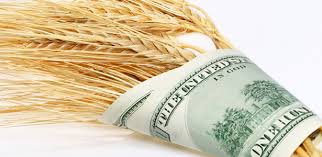Local farming is starting to become a thing of the past. Though more and more consumers are aware and in favor of locally produced crops, they are also accustomed to having “fresh” fruits and veggies of every variety at any time of year. How can a single farmer compete with the industrialized food markets that have popped up? Michael Rozyne had the idea to create Red Tomato; a company focused on giving local farmers a chance to sell their products along side the main stream produce at major food stores. This is a dialogue between Rozyne and a local Lewisburg farmer, Tim Owens…
Tim Owens: I’m excited about the prospect of distributing my produce through your organization, but I’m still confused what you get out of this?
Michael Rozyne: The mission behind Red Tomato includes making sure that local farmers have an equal chance at selling their goods, that regional food store chains get their produce in that same region, and that consumers know where their food comes from. We take a minimal cut of the total price in order to ensure that you as the farmer get the highest possible margin.
Owens: That all sounds great, but what happens if there’s another long winter and I can’t produce enough crops to meet demand?
Rozyne: That’s why we don’t require contracts because we understand that no one can control nature. We’ll take what you can supply for us, and when you can’t, there will always be next year.
Owens: I was once approached by a Monsanto representative, saying that I could make more money by using their products. She said I would be able to plant many more crops, and they would grow faster, and look better. Why is this better?
Rozyne: Because GMO’s are not natural. Crops are supposed to be grown with enough space and time to ripen. In the end, you’ll be making more money with us because Monsanto will always find new reasons and technologies that you will need to spend your own money on.
Owens: I see, well then it looks like you’ve got a deal! In the end, I care more about the quality of the food rather than the money, but I want consumers to have the option to choose my organic food over the other stuff.
Rozyne: It’s been a pleasure, can’t wait to pick up our first delivery!


I can’t even imagine being a local farmer and having this opportunity arise. Must feel like a miracle. I wonder if Owens would be so accepting at first. I would he wonder if there are more strings attached than Rozyne mentions?
LikeLike
This debate takes me back to your in class discussion when you brought in the GMO apple and the organic one. Not only did the organic taste better, but the physical differences were shocking. I like that you highlight that this is a goal of Red Tomato, in addition to the non profit structure. Red tomato is there to promote whats organic and natural, in addition to helping the farmer.
LikeLike
Is there a real Tim Owens? I can certainly imagine this conversation.
LikeLike
This dialogue nicely articulated the benefits that Red Tomato can bring to a farmer and why it may be better than certain alternatives. In terms of the conversation, as the farmer I would be more inquisitive as to whether products, such as those produced by Monsanto, would ultimately make me more money in the long run or cost me money (like you mention in the post).
LikeLike